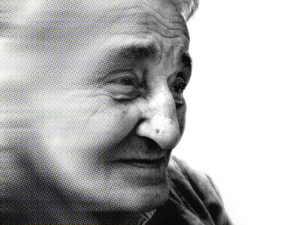More than 20,000 volunteers join search for new dementia treatment
More than 20,000 volunteers have enrolled in a resource dedicated to speeding up the development of urgently needed drugs for dementia. This cohort will allow researchers from both academia and industry to involve healthy individuals, potentially at heightened risk of dementia, in clinical trials.
These trials aim to assess whether new medications can decelerate the decline in various cognitive functions, such as memory, and postpone the onset of dementia.
Through this resource, scientists have made a groundbreaking discovery, demonstrating for the first time the involvement of two crucial bodily mechanisms – inflammation and metabolism – in the decline of brain function with aging.
Most treatment studies fail in clinical trials
Despite recent advancements in developing drugs that slow disease progression, the leading treatments only have modest effects. Additionally, the majority of new approaches that show promise in animal studies fail during clinical trials with patients. One possible explanation for these failures is that drugs are tested on individuals who already exhibit memory loss, which may be too late to effectively intervene in the disease progression. Therefore, there is an urgent need to comprehend the underlying mechanisms before symptom onset and to evaluate new treatments before cognitive issues are apparent.
Genes and Cognition Cohort
In a recent publication in the journal Nature Medicine, researchers led by the University of Cambridge, in collaboration with the Alzheimer’s Society, detail the recruitment of 21,000 individuals aged 17-85 into the Genes and Cognition Cohort within the National Institute for Health Research (NIHR) BioResource.
Established in 2007, the NIHR BioResource aims to enlist volunteers interested in participating in experimental medicine and clinical trials across various medical domains. Half of its participants join disease-specific cohorts, while the remainder come from the general population, providing detailed genetic and physical data and consenting to be contacted for future research.
For the Genes and Cognition Cohort, researchers utilized cognitive tests, genetic data, and other health and demographic information to conduct the first large-scale study of cognitive changes. This will facilitate the recruitment of participants for studies investigating cognitive decline and novel treatments.
Baseline cognitive measurements
For instance, a pharmaceutical company developing a promising drug candidate to slow cognitive decline could recruit suitable individuals from the BioResource and invite them to participate in a clinical trial. Baseline cognitive measurements will enable scientists to assess whether the drug effectively slows cognitive decline as expected.
Professor Patrick Chinnery from the University of Cambridge, who led the project, emphasizes the uniqueness of the resource, recruiting individuals without dementia symptoms. This approach enables precise matching of individuals to specific studies and accelerates the development of much-needed dementia treatments.
The effects of inflammation and metabolism
The research has identified two mechanisms influencing cognition with age: The first of these is inflammation, with immune cells specific to the brain and central nervous system – known as microglia – causing gradual deterioration of the brain and hence its ability to perform key cognitive functions. The second mechanism relates to metabolism – in particular, how carbohydrates are broken down in the brain to release energy.
Slowing cognitive decline could delay the onset of dementia significantly, providing substantial benefits at both individual and population levels.
Dr Richard Oakley, Associate Director of Research and Innovation at Alzheimer’s Society, emphasizes the importance of this study in understanding the early stages of dementia and developing targeted treatments. With data from over 20,000 volunteers, further groundbreaking analyses are anticipated in the future.
- For further information about how you can join the BioResource and contribute to studies like this one and many others, visit: bioresource.nihr.ac.uk.
The research was supported by the Alzheimer’s Society and the NIHR BioResource, with additional support from Wellcome and the Medical Research Council.



